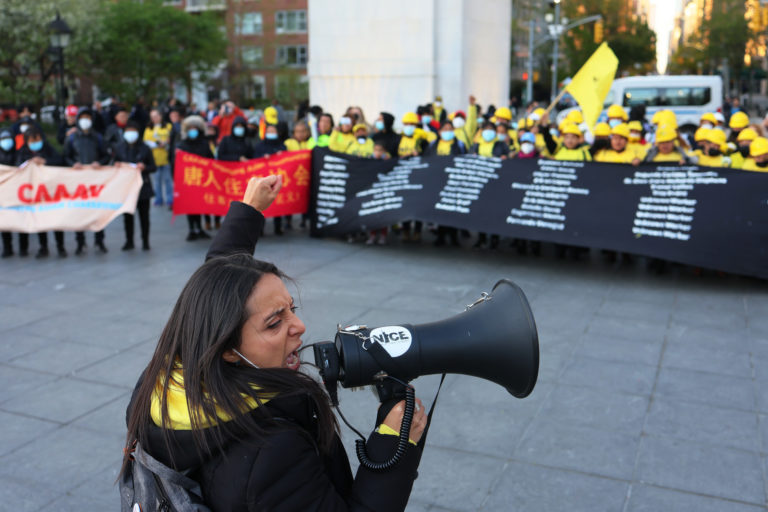Jon Weinberg is a student at Harvard Law School.
Congress may be open to revisiting the classification of gig economy workers as employees or independent contractors under the Fair Labor Standards Act. Per Bloomberg BNA, “the head of the House workforce committee May 3 told an audience of innovators that she would be open to updating the Great Depression-era Fair Labor Standards Act to better serve the on-demand workforce.” Education and the Workforce Committee Chairwoman Virginia Foxx (R-N.C.) likened classifying gig economy workers as “trying to fit a square peg in a round hole.” Rep. Foxx made the comments at Consumer Technology Association’s New American Jobs Summit. Workforce Protections subcommittee ranking Democrat Rep. Mark Takano (Calif.) responded to Bloomberg BNA with concern, stating “When she talks about updating the laws, what I hear her say is we need to throw out protections instead of how these workers can get a fair deal.”
New data shows that the U.S. unemployment rate is near a record low – but productivity is dropping. Reuters reports that “U.S. job growth rebounded sharply in April and the unemployment rate dropped to a near 10-year low of 4.4 percent, signs of a tightening labor market that could seal the case for an interest rate increase next month despite moderate wage growth.” Reuters also notes, however, that “in another report, the Labor Department said productivity decreased at a 0.6 percent annualized rate in the first quarter, the weakest in a year, after rising at a 1.8 percent pace in the fourth quarter. It increased at a 1.1 percent rate compared to the first quarter of 2016.”
State-sponsored retirement plans for low-income workers exempted from strict ERISA requirements under the Obama Administration will likely see that protection revoked. According to CNBC, the Senate passed a resolution to repeal the exemption. The resolution previously passed the House, and President Trump is expected to sign it into law. Under the plans in question, “private-sector workers whose employers do not offer 401(k) or other retirement benefits, and who often have low incomes, are automatically enrolled in plans being launched in some states, such as Illinois. States say the exemption would have let employers pass workers’ money into plans without footing ERISA compliance costs.”
Pennsylvania legislators are considering requiring state labor contracts to be publicly announced before they approved. The Meadville Tribune notes that “a state bill awaiting a final vote in the Senate would require labor contracts for state workers and school employees to be released to the public before they are approved.” Under the proposal, “information posted would include a statement of the terms of the proposed collective bargaining agreement and an estimate of the costs to the public employer associated with the agreement.”
Finally, Bloomberg Businessweek published an analysis of the use of “protection contracts— agreements negotiated between a company and a union that doesn’t legitimately represent workers” by autoworker unions in Mexico. Experts state that such agreements, which are illegal in the U.S., in Mexico are “a primary reason that wages in the auto sector have stagnated in recent years, despite a fresh wave of investments by foreign carmakers, most recently by German and Japanese manufacturers” and that “Mexico’s union bosses and politicians are more interested in keeping corporations happy than in raising the living standards of workers.”






Daily News & Commentary
Start your day with our roundup of the latest labor developments. See all
December 21
Argentine unions march against labor law reform; WNBA players vote to authorize a strike; and the NLRB prepares to clear its backlog.
December 19
Labor law professors file an amici curiae and the NLRB regains quorum.
December 18
New Jersey adopts disparate impact rules; Teamsters oppose railroad merger; court pauses more shutdown layoffs.
December 17
The TSA suspends a labor union representing 47,000 officers for a second time; the Trump administration seeks to recruit over 1,000 artificial intelligence experts to the federal workforce; and the New York Times reports on the tumultuous changes that U.S. labor relations has seen over the past year.
December 16
Second Circuit affirms dismissal of former collegiate athletes’ antitrust suit; UPS will invest $120 million in truck-unloading robots; Sharon Block argues there are reasons for optimism about labor’s future.
December 15
Advocating a private right of action for the NLRA, 11th Circuit criticizes McDonnell Douglas, Congress considers amending WARN Act.